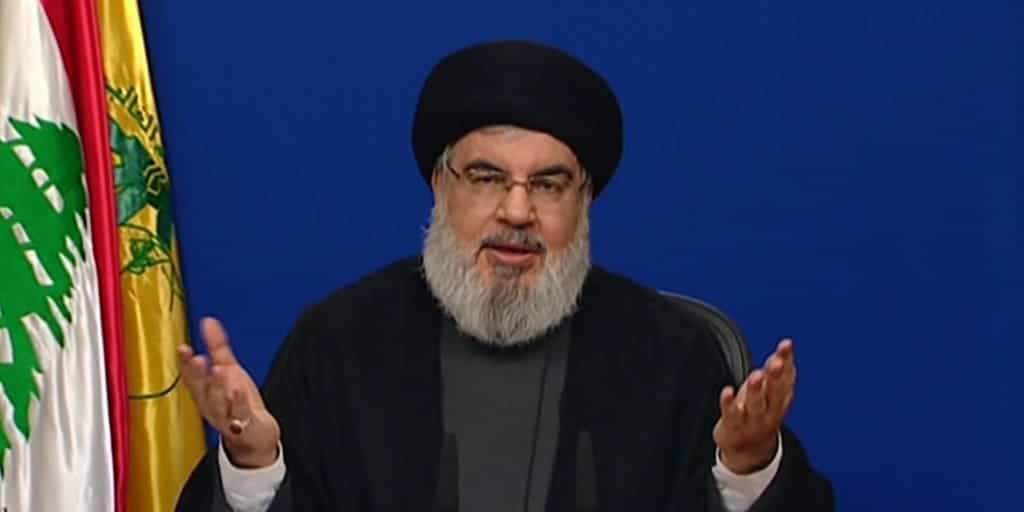Hezbollah head prefers China to IMF for Lebanon bailout

China is prepared to invest in key infrastructure projects in Lebanon should the crisis-hit country embrace the East, Hezbollah leader Hassan Nasrallah announced Tuesday night.
“Chinese companies are ready to inject money into this country,” he said in a speech on Hezbollah’s Al-Manar television.
One of the most important and quickly-realizable projects would be the revival of Lebanon’s coastal railway, from Naqoura on the southern border with Israel to Tripoli on the northern border with Syria, according to Nasrallah.
“If this happened, it would bring money to the country, bring investment, create job opportunities, allow heavy transport, and so on,” the Shiite leader said.
China has long expressed interest in Lebanon’s northern port of Tripoli as a link for its Belt and Road Initiative, involving a railway that would be key to the reconstruction of Syria.
It has thus far steered away from any major investment, however, amid ratcheting US sanctions on Damascus.
The Chinese embassy in Lebanon was not immediately available for comment on Nasrallah’s statements.
Nasrallah condemned a new round of expanded US sanctions under the Ceasar Act, but suggested these would not halt Chinese investment in Lebanon, if the Lebanese were ready to reach out to Beijing.
The Chinese are poised, Nasrallah said, to construct a new electricity plant for Lebanon.
Lebanon’s electricity sector is notoriously wasteful, polluting and corrupt, wracking up well over US$1 billion in debt each year while failing to provide more than half a day of power in most of the country.
The Hezbollah leader pointed to Iran as a logical source for Lebanon’s energy needs, and one which would be amenable to a barter system insulated from the US Treasury.
“I say to the Lebanese people, there are alternatives,” he emphasized.
Beijing, Nasrallah argued, could offer more rapid and likely funding for Lebanon than a sought-after $10 billion IMF bailout, which is expected to take more than a year to negotiate – if it is accepted.
Nasrallah’s call to look East echoes guidance that Iran’s Supreme Leader Ayatollah Khamenei offered Islamic Republic officials following the breakdown of the nuclear treaty with world powers.
Unlike Iran, however, Lebanon is not a pariah state – until now – in the eyes of the US government. While hawks in Congress have long called for an end to support for the Lebanese armed forces, such calls have not been heeded, including by the Trump administration.
Hezbollah also remains pragmatic, most recently accepting the national consensus that IMF negotiations would be in the country’s best interest given the dire economic situation.
Lebanon in the past nine months has seen the unraveling of its longstanding US dollar peg and the instituting of de facto capital controls, cutting off the relatively well off from their deposits, crippling business and leaving the middle class and poor struggling to cope with skyrocketing prices.
The Institute of International Finance, a global association of financial institutions, tracked roughly $30 billion in capital outflows between the start of the fourth quarter of 2019 and the first quarter of 2020.
In March, Lebanon defaulted on a $1.2 billion Eurobond payment, choosing to save its remaining reserves for critical imports amid zero, and possibly sub-zero, economic growth.
Photo: An image grab taken from Hezbollah's al-Manar TV on March 20, 2020, shows Hassan Nasrallah, the head of Lebanon's powerful Shiite Muslim movement Hezbollah, delivering an address from an undisclosed location in Lebanon. Photo: AFP
Link: https://asiatimes.com/2020/06/hezbollah-head-prefers-china-to-imf-for-lebanon-bailout/











